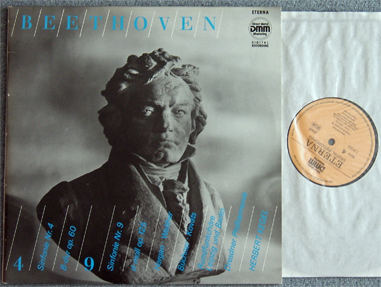Bohm's '72 performance on LP, also with the Weiners (and also with its own dedicated side) is another excellent choice - it is part of his DG box on vinyl from the same era and definitely one of the ones - but the '81 has, imo, better dynamics, better bass, and a bit more clarity. The latter is slower but suits Bohm's style and he definitely makes it all work. I'm open to hearing others, but for now, as regards sound quality, on vinyl this is the Ninth for me.
Thanks for reminding me of the 72 Bohm. I remember distinctly hearing the fourth movement the first time and being absolutely floored with first entrance of baritone after the statement in the cellos. I had a completely visceral reaction of the grandeur and clarity of the piece and the recording.
Larry



